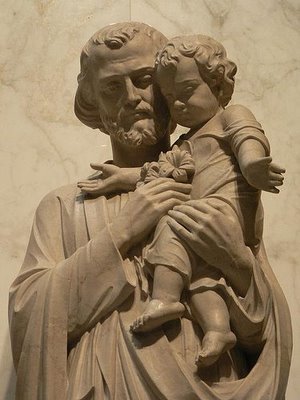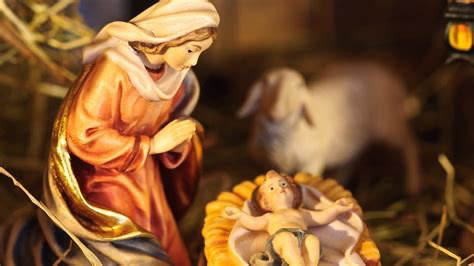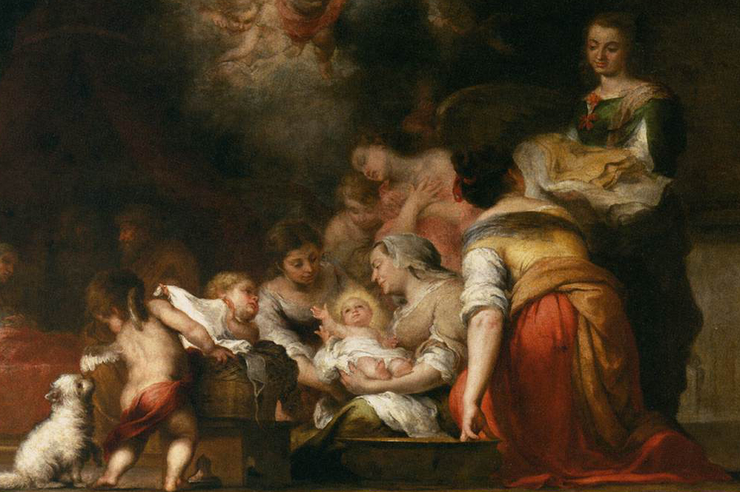During St. Teresa’s younger years she was quite ill and even crippled. After seeing how helpless the doctors were, she began to seek help from the saints in heaven that they might cure her. She writes in her autobiography that she took for her advocate and lord St. Joseph recommending herself to him with all earnest. It is to St. Joseph’s intercession that she was able to walk once again. She writes:
“I saw clearly that as in this need so in other greater ones concerning honor and loss of soul this father and lord of mine came to my rescue in better ways than I know how to ask for. I don’t recall up to this day ever having petitioned him for anything that he failed to grant. It is an amazing thing the great many favors God has granted me through the mediation of this blessed saint, the dangers I was freed from both of body and soul. For with other saints it seems the Lord has given them grace to be of help in one need, whereas with this glorious saint I have experience that he helps in all our needs and that the Lord wants us to understand that just as He was subject to St. Joseph on earth . . . so in heaven God does whatever he commands.” (The Book of Her Life)
Once she was in need when setting up a new monastery and did not know how she would pay the workmen. St. Joseph assured her that she “would not be lacking”. She hired the workers even though she did not have any money. The “Lord in ways that amazed those who heard about it provided for me.” Her brother, who was living in South America, sent her the money that she needed. In her letter to him on December 23, 1561, she acknowledges his gift and expresses her gratitude. (The Collected Letters of St. Teresa, Vol 1)
On another occasion she writes about the protection she received from this wonderful saint. In the midst of conflicts and exhausted, St. Teresa didn’t worry. Instead she “prayed to the Lord to protect me and to my father St. Joseph to bring me to his house, and I offered God what I would have to undergo.”
She always celebrated his feast day with as much solemnity as possible. Since she has experienced so much good from this saint, she has done much in promoting devotion to him. “I have not known anyone truly devoted to him and rendering him special service who has not advanced more in virtue.” And who wouldn’t want to advance in virtue? St. Teresa is convinced that he will benefit souls in a powerful way – all they have to do is to recommend themselves to him. “For some years now I have asked him for something on his feast day, and my petition is always granted.”
St. Teresa also says that St. Joseph is someone who persons of prayer should attach themselves. Since he was so good and assisted the Blessed Mother and the Infant Jesus, she is convinced through her own experience that he will not fail to assist anyone who is devoted to him and entrusts themselves to him.
“Those who cannot find a master to teach them prayer should take this glorious saint for their master, and they will not go astray.”
Ask St. Joseph to help you pray and recommend all your cares and concerns to him. Perhaps there is a virtue that you need. If so, ask St. Joseph for this, today on his feast day.












